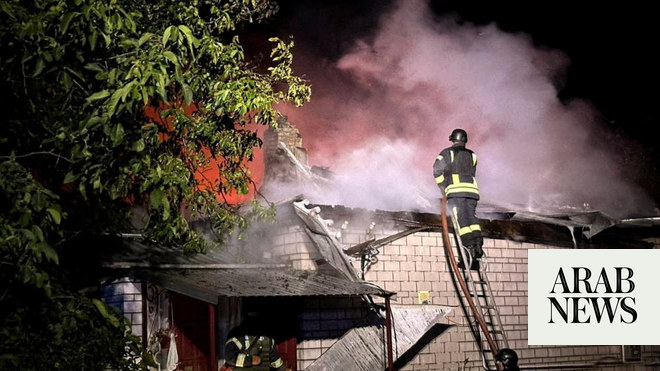Jailed Belarusian Nobel laureate should have been freed in prisoner swap, supporters say
VILNIUS: Supporters of jailed Belarusian Nobel Peace Prize winner Ales Bialiatski say on Thursday the human rights activist should have been included in the biggest prisoner swap between East and West since the Cold War.
Allies of Bialiatski and other jailed Belarusians are disappointed that they were not included in the swap, which saw eight Russians, including a convicted murderer, exchanged for 16 prisoners in Russian and Belarusian jails, many of them dissidents.
Some of the Russian dissidents freed in the swap, including Ilya Yashin, an opposition activist, expressed anger and reservations on Friday at being deported from their country against their will.
Bialiatski, 61, who is serving a 10-year sentence for financing anti-government protests after a 2023 trial condemned by the United States and European Union as a “farce,” received the Nobel Peace Prize in 2022, a year after his arrest.
“When we heard that the deal was imminent, we hoped that one of the Belarusian political prisoners would definitely be part of it. First of all, of course, the imprisoned Nobel Peace Prize winner,” said Alena Masliukova, a member of Viasna, the human rights organization founded by Bialiatski.
“It was a total disappointment and we still haven’t gotten over it,” said Masliukova, who now lives in exile in Vilnius, the Lithuanian capital.
Among those released in this week’s swap was German citizen Rico Krieger, sentenced to death on terrorism charges in Russia’s close ally Belarus, where 1,390 people are being held on political charges, many of them linked to the mass protests four years ago, according to Viasna.
Belarusian President Alexander Lukashenko, in power since 1994, faced massive protests after a disputed 2020 presidential election, the biggest challenge to his rule.
He has long rejected accusations of human rights abuses.
Viasna says activists are still being hauled before the courts for their role in the protests, while Masliukova said political prisoners face harsh conditions in prison.
“They are kept in cold cells, without contact with relatives. They leave prison with compromised health,” he said.
Bialiatski voluntarily returned from exile in Belarus in 2021, despite knowing he would likely be arrested, which his supporters said could mean he would no longer be willing to leave the country, a process that by law requires the prisoner to seek clemency.
“I know his character and I am sure he would never ask Lukashenko for forgiveness,” said Siarhei Sys, a longtime friend. “I don't know what will happen in five years … It all depends on the state of his health.”
